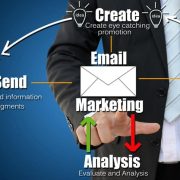In an earlier post titled “8 Digital Skills that Will Increase Your Salaries”, I discussed the different skill sets needed to advance your career in digital and, hopefully, increase your salary. What if you want to move up to a more senior position? What will executives look for?
Here are some of the most important ones.
Think Strategically
You must see the bigger picture when you step into a leadership position. This is different from being a contributor or digital strategist. As a contributor or strategist, your focus is usually narrower: you’re given a set of responsibilities to execute. It would help if you thought about so much more in a leadership position: leading a team and managing a budget. You also need to align with the organization’s broader goals.
Your ability to strategize and think about where you’ve been and where you are right now, and what you need to do to help your team move forward will be a critical factor in your success. You will also need to know how your team or business contributes to the overall company objectives and how you can significantly grow your department to impact your bottom line.
Here are some ways you can set yourself up to succeed:
Learn about your company’s operations
Understand the global executive goals for the year
Understanding how to support your business (or the different departments within it)
I cannot emphasize this enough: Network with your colleagues internally
Get a deeper understanding of the industry, market, and technological ecosystem
Look ahead by studying the trends
Create a role
If you pay attention to my advice, the company’s knowledge base may be lacking. You can introduce a new role to your executive team that has never been done before. Create a plan and outline the benefits and proof points. Suggest a simple implementation roadmap and ask for a minor group.
Go to work, then! Feel free to act as a change agent. Feel free to make a change.
People will always resist anything new. You can move the needle with a well-thought-out plan, constant education, and influence. Once it starts moving, you’ll see a massive landslide. The fun begins!
Look at how other people in your industry and those outside of it have structured their strategies and teams. Collect data and examples that support your plan. Don’t hesitate to talk to others; reach out to connect. (See the point on Networking below). Consider your organization’s current culture and prepare yourself for questions and pushbacks from your leaders.
Networking
The most crucial skill any person could possess to succeed in any position is networking skills. You need to be able to know people to be able to innovate within your company. Period. The story is over.
You should find allies within your team (the marketing department, for instance) and throughout the entire company (legal, HR, Finance, IT, Security, PR, Sales, Customer Care, etc.). When challenges and resistance arise (and they will), you will be able to draw on the social capital you have created within your organization.
A network is not limited to your organization. Attend conferences to find others with similar roles in other brands and industries. Invite people to coffee and ask them questions. Share your experiences.
LinkedIn has allowed me to connect with many people without an introduction. Guess what? Most people replied and were happy to connect. Do not be afraid of rejection. What could go wrong? What if they don’t respond to your message at all?
The same approach applies to your industry’s agencies, tech companies, and vendors. Meet other brand owners, software creators, and market experts. This network is invaluable.
Measuring the Business Impact
Two things will be used to measure a leader’s success: their team’s impact on business and their effectiveness at leading people.
Let’s start with the first. Every program and every project must be evaluated. You will only be successful long-term if you show the ROI (return on investment).
You must first set the correct objectives (ensure that they are aligned with the short-term and long-term goals of the company) and then implement the people, processes, and infrastructure to ensure the success and consistency of your programs.
How to Tell the Story and Present Effectively
A leader who is confident in front of others will be a great leader. One of the essential skills a leader has is speaking to their teams and inspiring them to do their best for the business.
You need to be able to give a concise and clear plan and tell an engaging story if you want to convince executives to fund a pilot test or “sell” your program. According to a Native American proverb, “Those who can tell stories are the ones who rule the world.” It’s so true!
You are not just a [insert title here] but also a leader. You “sell” your company every day. It would help if you convinced the executives of your budget, hiring, new technology, etc. This requires excellent presentation skills. A great Storyteller will set you apart from your peers.
Consider joining Toastmasters or other speaking groups. You can also read books about the subject. Record yourself and watch it to see how you can improve. Hire a coach. Create a collection of universal stories to support your main points during presentations.
It is interesting to note that leaders rarely consider developing these skills. When they build their leadership toolkit, it is given little attention. This is the one skill that has the most significant impact (aside from Networking).
Know Your Competition
Here’s a secret that could be better kept: The best leaders don’t benchmark themselves against prominent competitors (peers within the industry). They benchmark themselves instead against other innovators or disruptors. Why? They are the disruptors who redefine and define what great storytelling, branding, or marketing is.
Do not look to your direct competitors as inspiration. You should look to companies doing fantastic work in your expertise, just as great designers and engineers do. Look at the innovative and inspiring digital work done by Airbnb, REI Visa, Burberry, Mcdonald’s, Wendy’s, Coke, and other companies.




















Comments